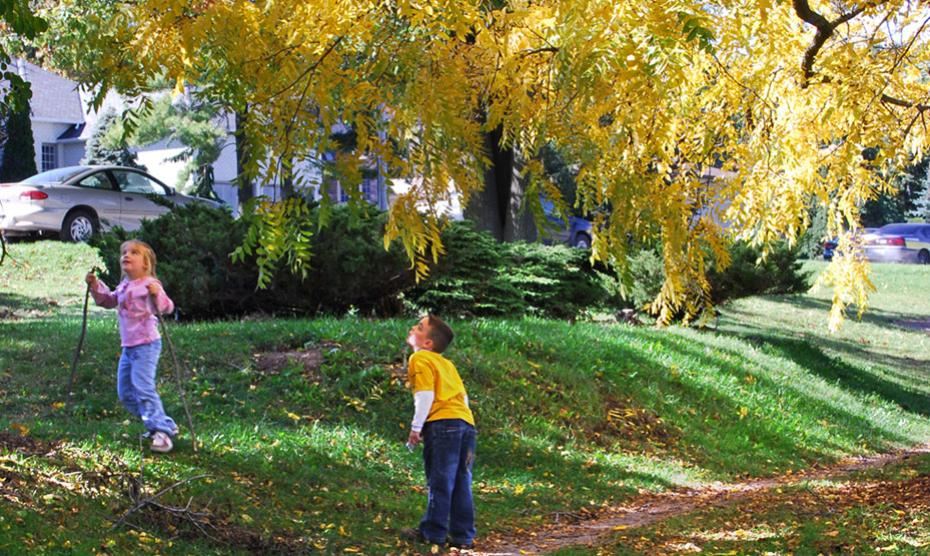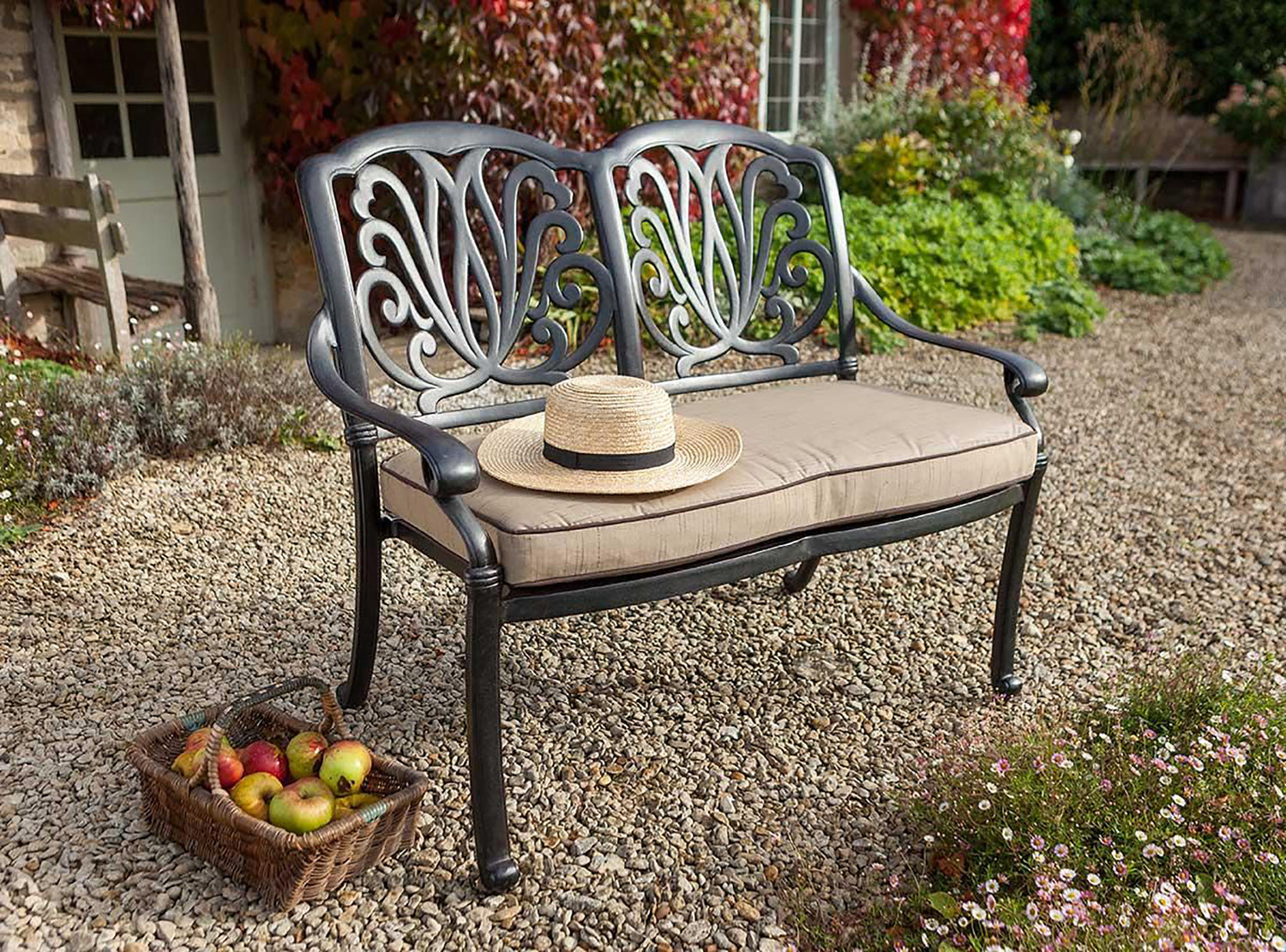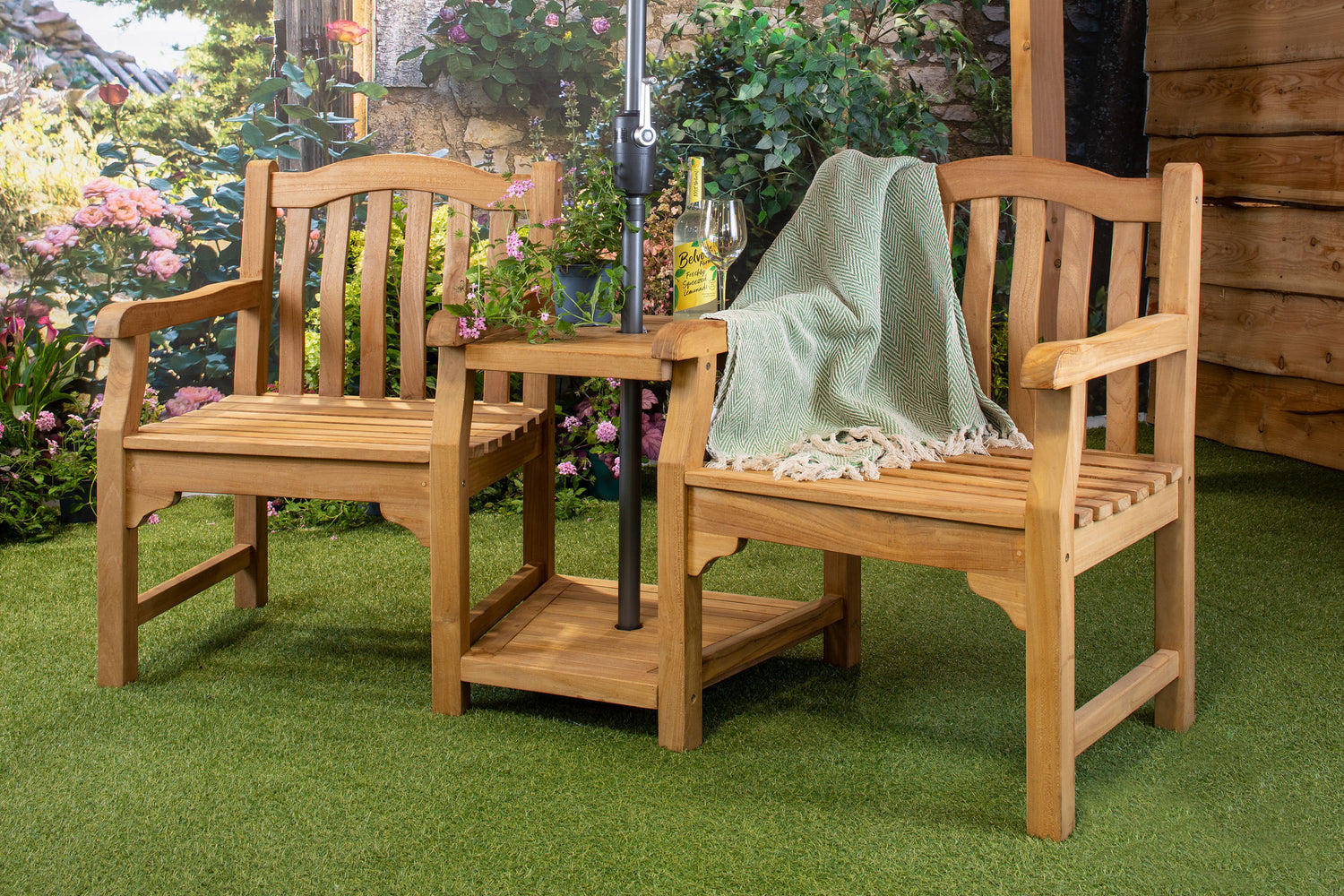Natural environment in crisis; start with the kids
Hayes Garden World recently commissioned a survey to ascertain the extent to which children, and to some degree the parents, interact with the outdoors, whether it’s in the garden or just going for a walk in the countryside. The survey discovered that over 25% of parents say that their child is more interested in technology than nature and that they spend very little time in autumn and winter playing outside. There’s no doubt that technological know-how is an essential part of life but equally it’s the outdoor environment that ultimately sustains life, both physically and mentally.
Out of the 1,072 parents who took part in the survey, the overwhelming majority agreed that being outdoors benefited their child; 96% reported that it improved their children’s behaviour, 89% stated that it greatly improved the child’s creativity and a positive effect on the mental health of their children was reported by 78% of parents. These results were also borne out in the school environment; enabling them to better concentrate and interact with the other children more beneficially. This is a huge positive as a good education forms the basis for the rest of a child’s life, enabling them to reach their full potential, surely the goal of most parents.
Autumn and winter appear to present a particular problem, with the weather cited as the major factor as to why children did not go outdoors; 56% of parents didn’t want their children going out in the rain, 33% ranked the cold and 22% snow and ice, although all of these situations can be addressed by wearing suitable clothing. With winter sports becoming hugely popular surely these are minor objections, after all what child doesn’t like playing in the snow. Lack of light after school hours was another reason cited by 38% of parents, however this still leaves the weekends.
The majority of children are interested in nature, 75%, with only 26% of children being more interested in technology, so there is plenty of scope for children to become involved. Read the blog “Winter Gardening with Kids” for lots of ideas of things to do in the countryside and the garden; and for those truly awful days when it’s simply not feasible to go out there are gardening projects which can be done indoors.
Unfortunately, in this day and age there are safety concerns about letting children roam free, something which wasn’t a worry just a few decades ago, and many urban homes no longer have access to their own garden. Not only is access a barrier, 40% of parents don’t feel that they have the ability to even carry out the simplest of gardening tasks. Following on from this Hayes Garden World, in the future, are planning to run simple gardening sessions aimed at engaging both parents and children.
Lyndan Orvis, Head of Online Development here at Hayes commented that:
“We have aimed much of our teaching and gardening clubs directly at children over the years, to try and ensure a grassroots interest in planting and gardening. However, the research shows that perhaps we should be offering more adult-focused classes to parents, as 40% of them are not confident enough to plant anything with their children. It is unlikely that parents who have little confidence in planting or gardening are likely to encourage their children to have a go.
Gardening is a wonderful way of encouraging children to connect with the world around them. Caring for plants and wildlife can create appreciation for nature as well as an understanding of time and how the ecosystem works.
The future of our gardening industry could depend on us trying harder to encourage young parents to get green fingered and give gardening a go.”
Dr Elena Touroni, Consultant Psychologist and Clinic Director of The Chelsea Psychology Clinic, commented:
“Parents will have the greatest influence in whether children will be particularly interested in exploring nature. Despite this, the younger they are, the more interested they are in exploring generally so younger children will have a natural inclination to be curious and explore the outdoors. The only way this doesn’t happen is if the lifestyle/ attitude of their parents do not facilitate this behaviour. For example, if you go on walks or stay indoors with parents then they’re more likely to do this in the future.
Mentally exploring new environments will help children to gain self-confidence and contribute to their emotional and social wellbeing, as they will likely be playing with other children. There is a socialisation angle in that developing an appreciation for the outdoors will help children to be and live in the present moment, developing mindfulness skills and strengthening their interactions with fellow peers.
Ultimately, it is all about exposure and familiarity with being outdoors, where this can then become a preference to maintain this or not.”
In the meantime please don’t let a lack of knowledge deter you from trying to grow plants, it is hugely rewarding eating something that you have grown yourself and a wonderful way of getting children to eat vegetables. If you would like any advice on getting started growing please just ask any of our staff in the Outdoor Plant Department who will be only too happy to suggest easy projects, or just fill in the Contact Us form on the website.




![Kingsbury-bench-05[1].jpg](http://www.hayesgardenworld.co.uk/cdn/shop/files/Kingsbury-bench-05_5B1_5D.jpg?v=1712162737&width=1500)
![Kingsbury-bench-01[1].jpg](http://www.hayesgardenworld.co.uk/cdn/shop/files/Kingsbury-bench-01_5B1_5D.jpg?v=1712161065&width=1500)
![tw17a-4947_0[1].jpg](http://www.hayesgardenworld.co.uk/cdn/shop/files/tw17a-4947_0_5B1_5D.jpg?v=1712161495&width=1500)
![tw17a-4947_tenbury_5ft[1].jpg](http://www.hayesgardenworld.co.uk/cdn/shop/files/tw17a-4947_tenbury_5ft_5B1_5D.jpg?v=1712161172&width=1500)
![tw17a-4952_tenbury_4ft[1].jpg](http://www.hayesgardenworld.co.uk/cdn/shop/files/tw17a-4952_tenbury_4ft_5B1_5D.jpg?v=1712161034&width=1500)
![thumbnail_IMG_1565-kik_2[1].jpg](http://www.hayesgardenworld.co.uk/cdn/shop/files/thumbnail_IMG_1565-kik_2_5B1_5D.jpg?v=1712226536&width=1500)
![thumbnail_IMG_1565-kik_1[3].jpg](http://www.hayesgardenworld.co.uk/cdn/shop/files/thumbnail_IMG_1565-kik_1_5B3_5D.jpg?v=1712159637&width=1500)



![WD-XgESA[1].jpeg](http://www.hayesgardenworld.co.uk/cdn/shop/files/WD-XgESA_5B1_5D.jpg?v=1712159609&width=1500)